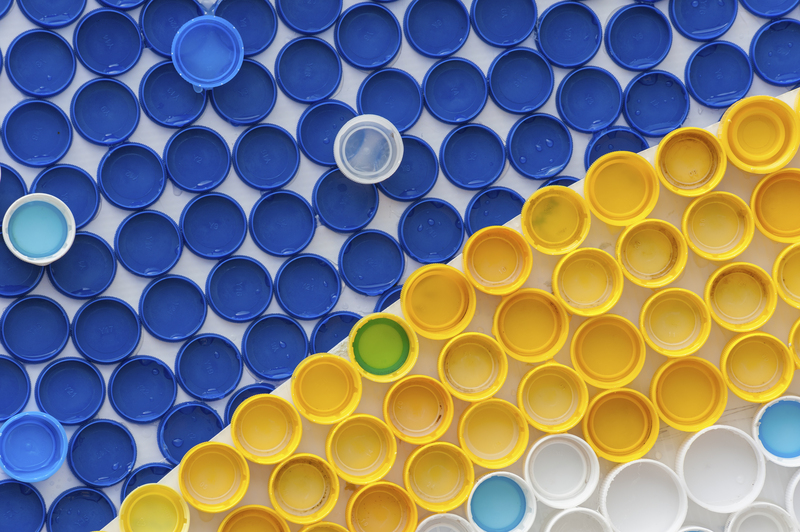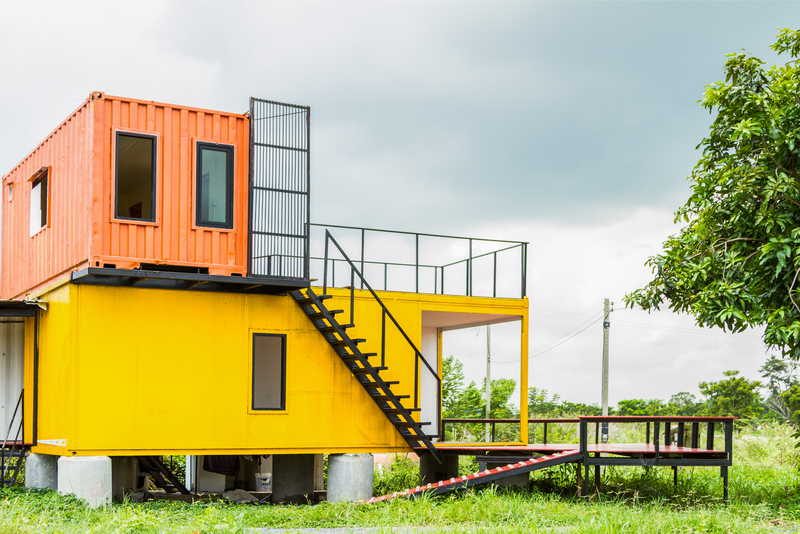Simple Changes to Make Your PPE Disposal Eco-Friendly
Personal Protective Equipment (PPE) such as masks, gloves, face shields, and gowns have become essential in everyday life, especially after the COVID-19 pandemic. While PPE has helped protect our health, it has introduced a significant environmental challenge -- improper disposal is leading to increased pollution, threatening both wildlife and ecosystems.
This comprehensive article explores easy, effective, and eco-friendly ways to dispose of PPE, providing practical tips for individuals, businesses, and healthcare professionals. If you're looking for sustainable PPE management tips, you're in the right place!

Why Is Eco-Friendly PPE Disposal Important?
Each day, millions of single-use masks and gloves are discarded improperly, many of which end up in landfills, rivers, and oceans. According to recent studies, over 1.5 billion face masks entered the world's oceans in 2020 alone. This plastic pollution causes severe harm to marine life, contaminates water sources, and contributes to the growing issue of microplastics in the environment.
By learning and embracing eco-friendly ways to dispose of PPE, you help reduce pollution, conserve natural resources, and support a healthier planet for future generations.
Understanding PPE Materials and Their Impact
- Masks: Typically made of polypropylene, a form of plastic.
- Gloves: Commonly produced from nitrile, latex, or vinyl.
- Gowns and Aprons: Often manufactured from non-woven plastics and synthetic fibers.
- Face Shields and Goggles: Constructed with plastics like polycarbonate.
Most of these materials are designed for single use and are non-biodegradable, emphasizing the urgency for sustainable PPE disposal practices.
1. Choose Reusable PPE Whenever Possible
One of the simplest changes you can make towards eco-friendly PPE management is opting for reusable items. Here's how:
Switch to Reusable Masks
- Use fabric masks (with multiple layers) instead of disposable ones.
- Launder regularly according to CDC or local health guidelines.
- Choose masks made from organic cotton or recycled materials for added eco-friendliness.
Tip: Always have a few reusable masks handy, so you're not tempted to use single-use versions.
Opt for Washable Gloves and Gowns
- For non-medical settings, consider durable, washable gloves and gowns.
- Ensure proper cleaning after each use to maintain safety.
- High-quality reusable PPE can be cost-effective and significantly reduces waste.
2. Properly Segregate PPE Waste
Improper disposal of PPE waste--in household bins or public spaces--worsens plastic pollution. Segregation prevents contamination and paves the way for eco-friendly PPE disposal. Here's what you can do:
Designate PPE Disposal Bins
- Use color-coded or clearly labeled bins for PPE waste at home, work, or in public areas.
- Ensure bins have lids to avoid exposure and accidental spreading of contaminants.
- Never mix PPE waste with recyclable materials, as this can contaminate the whole batch.
Encourage Responsible Disposal in the Community
- Share information on local PPE disposal protocols and locations with friends and neighbors.
- Advocate for extra PPE bins in high-traffic public places like supermarkets and train stations.
3. Cut Down and Prepare PPE Before Disposal
You can reduce the environmental impact of disposing used PPE by dismantling or cutting it before binning. This simple act helps protect wildlife and stops items from entangling animals.
- Snip the ear loops off masks before disposal to prevent them from becoming entanglement hazards for wildlife.
- If possible, cut gloves and other items into smaller pieces.
This easy step only takes seconds but can save animals and help minimize environmental damage.
4. Consider Specialized PPE Recycling Programs
Traditional recycling centers do NOT accept contaminated PPE due to health and equipment concerns. However, a growing number of localities and companies offer specialized PPE recycling solutions.
Find PPE Recycling Services
- Check with local authorities or health departments about available PPE recycling drop-off points.
- Many courier services (such as Terracycle) provide prepaid PPE recycling boxes for homes and workplaces.
- Some hospitals and large businesses have vendor agreements for PPE reclamation and recycling.
Remember: Always follow handling instructions (such as sealing used PPE in bags) to protect recycling workers.
5. Reduce Unnecessary Use of Disposable PPE
Another simple and eco-friendly PPE management strategy is to avoid using disposables when not essential.
- For everyday activities, use reusable items unless guidelines mandate otherwise.
- Educate family and colleagues on when single-use PPE is truly required.
- Store reusable PPE for emergencies to avoid panic buying or overuse of disposables.
You'll not only help the environment but can also save money in the long run!
6. Participate in PPE Upcycling Initiatives
Several creative eco-friendly PPE disposal solutions are now being trialed worldwide through upcycling initiatives. They turn used items into useful products, keeping them out of landfills.
Examples of PPE Upcycling Projects
- Transforming cleaned masks and gloves into building materials, like recycled bricks or paving stones.
- Collaborating with artists to create installations and raise environmental awareness.
- Local communities repurpose PPE into crafts, fashion, or furniture.
If you come across local or online upcycling projects, contribute your clean, dry PPE or spread the word!
7. Educate and Advocate for Sustainable PPE Solutions
Knowledge is power. By educating others and advocating for changes, you can multiply the impact of your actions:
- Share eco-friendly PPE disposal methods with your community, school, or workplace.
- Support businesses and organizations that use eco-conscious PPE procurement choices.
- Contact policymakers to promote the development of biodegradable or recyclable PPE.
As more people demand sustainable solutions, manufacturers and governments are more likely to invest in green alternatives.
The Role of Biodegradable PPE in Eco-Friendly Disposal
A significant innovation is biodegradable PPE. Companies now manufacture masks, gloves, and face coverings using biodegradable materials, such as corn starch, bamboo fiber, or plant-based polymers. These break down more quickly in landfills or composting environments than traditional plastic-based options.
- Look for certified biodegradable labels when purchasing PPE.
- Follow manufacturer guidelines for composting or special disposal (not every biodegradable item is suitable for home compost).
*Switching to biodegradable PPE is an excellent step for businesses and individuals seeking eco-friendly PPE disposal options.*
Myths About Eco-Friendly PPE Disposal
Understanding what NOT to do is just as important as knowing the best practices. Here are some common misconceptions:
-
Myth: All disposable PPE can be tossed in the recycling bin.
Fact: Most curbside recycling programs can't process PPE due to contamination risk and unsuitable materials. -
Myth: Burning PPE is a safe, eco-friendly solution.
Fact: Burning can release harmful chemicals and microplastics into the atmosphere unless done in industrial incinerators with pollution controls. -
Myth: Throwing PPE into landfill is harmless.
Fact: PPE adds to long-lived plastic pollution and risks harming wildlife if not properly contained. -
Myth: It's not possible to make a difference as one person.
Fact: Collective small changes add up and influence broader change and industry practices.
Simple Changes for Businesses & Healthcare Settings
Workplaces and healthcare facilities can significantly improve their environmental footprint by adopting sustainable PPE disposal practices.
- Train staff on proper PPE waste segregation and disposal protocols.
- Partner with specialized hazardous waste or recycling services.
- Transition to reusable or biodegradable PPE options when regulatory and safety requirements allow.
- Provide information for staff and visitors on proper PPE handling and eco-friendly disposal.
Establishing a sustainable PPE disposal strategy enhances your corporate social responsibility and helps protect the planet.
Frequently Asked Questions: Eco-Friendly PPE Disposal
- Can I put used masks or gloves in household recycling?
No. Most PPE is not recyclable in household waste streams due to material composition and contamination risk. - Are there safe ways to compost PPE?
Standard plastic-based PPE can't be composted. Only certified biodegradable PPE may be suitable for composting, following specific guidelines. - What should I do with large amounts of PPE waste?
Contact local health authorities or waste management providers for bulk disposal or specialized recycling options. - Is burning PPE waste environmentally friendly?
Burning at home or in open spaces releases toxins; only approved industrial incineration is safe for some PPE types. Avoid this method if possible.

The Future of Eco-Friendly PPE Disposal
Globally, demand is rising for sustainable PPE solutions. Manufacturers are developing new materials designed to be recycled or safely biodegrade, and more cities are investing in special collection and recycling programs. However, individual responsibility remains the first line of defense against PPE pollution.
Key Trends to Watch:
- Growth of PPE recycling partnerships between businesses, hospitals, and environmental organizations.
- Widespread use of plant-based, biodegradable PPE.
- Development of government policies mandating sustainable PPE procurement and disposal.
- Public education campaigns and eco-labeling for PPE products.
Conclusion: Every Little Change Counts
The pandemic has reminded us of the vital importance of personal safety -- now it's time to apply the same attitude to environmental safety. Each one of us can make a difference by adopting simple, eco-friendly PPE disposal habits.
- Switch to reusable and biodegradable PPE when possible
- Segregate and prepare PPE before disposal
- Participate in recycling and upcycling programs
- Educate others and advocate for sustainable practices
The road to a greener future starts with small, mindful actions--make your PPE disposal sustainable, and inspire others to do the same.
Remember: Simple changes add up. Together, we can reduce PPE-related pollution and create a healthier planet for current and future generations.



